STATION F: 5 years, 5.015 startups and a lot more to come
As STATION F is celebrating its 5th birthday, Roxanne Varza is looking back for a short moment to see what has been accomplished.
As we celebrate 5 years of STATION F this week, I can’t help but feel incredibly grateful. Grateful for this incredible opportunity entrusted in me by our Founder Xavier Niel, grateful for the team that has been by my side throughout the years, grateful for all the support from various organizations and individuals far and wide - and obviously grateful for the numerous entrepreneurs and partners that placed a bet on us and continue to do so. I am humbled thinking of everyone who has contributed to make STATION F what it is. It really is proof of what a collective effort can accomplish for an underdog ecosystem.
The first announcement we made at TechCrunch Disrupt in Dec 2016
France: the underestimated ecosystem
Over the last 5 years the ecosystem has evolved a lot - and I like to think that we played a part in it. When we were launching, France was considered almost a joke of an ecosystem. Sure, there was a unicorn or two, but we were still incredibly far behind Berlin and London. Entrepreneurship was still nascent, funding was scarce, and top talent was on the way out. So when we announced that we wanted to fill our building with 1.000 startups in the center of Paris, many thought it would simply never happen. “Are there really 1.000 startups in France?” many asked.

Article from 2013, when the project was first announced
But France underestimated herself - as she often does. Our launch coincided with Brexit, Donald Trump’s presidency, President Macron’s presidency, high Silicon Valley prices and a lot of other factors that would lead to what can only be described as a shift in global ecosystems. France - who has always been attractive as a country for historical and cultural reasons - finally demonstrated that it could be attractive for business as well. Today, company creation is at an all-time high, the talent trend has been reversed with talent in-bound rather than outbound, funding hit €11.6bn last year (over 2x the amount raised in 2020, with 60% coming from international funds) and we hit President Macron’s 2025 target of 25 unicorns in January 2022 - 3 years early. Not too shabby.
Hey, remember they used to call us “1000Startups” and “Halle Freyssinet”?
At STATION F, we have naturally undergone a lot of transformation as well. Initially, we set out to prove that yes, we can fill a massive space in the center of Paris with 1.000 startups. In fact, when I joined the project, the temporary name used was “1000startups.” And, believe it or not, this target was actually achieved more easily that we ever expected.
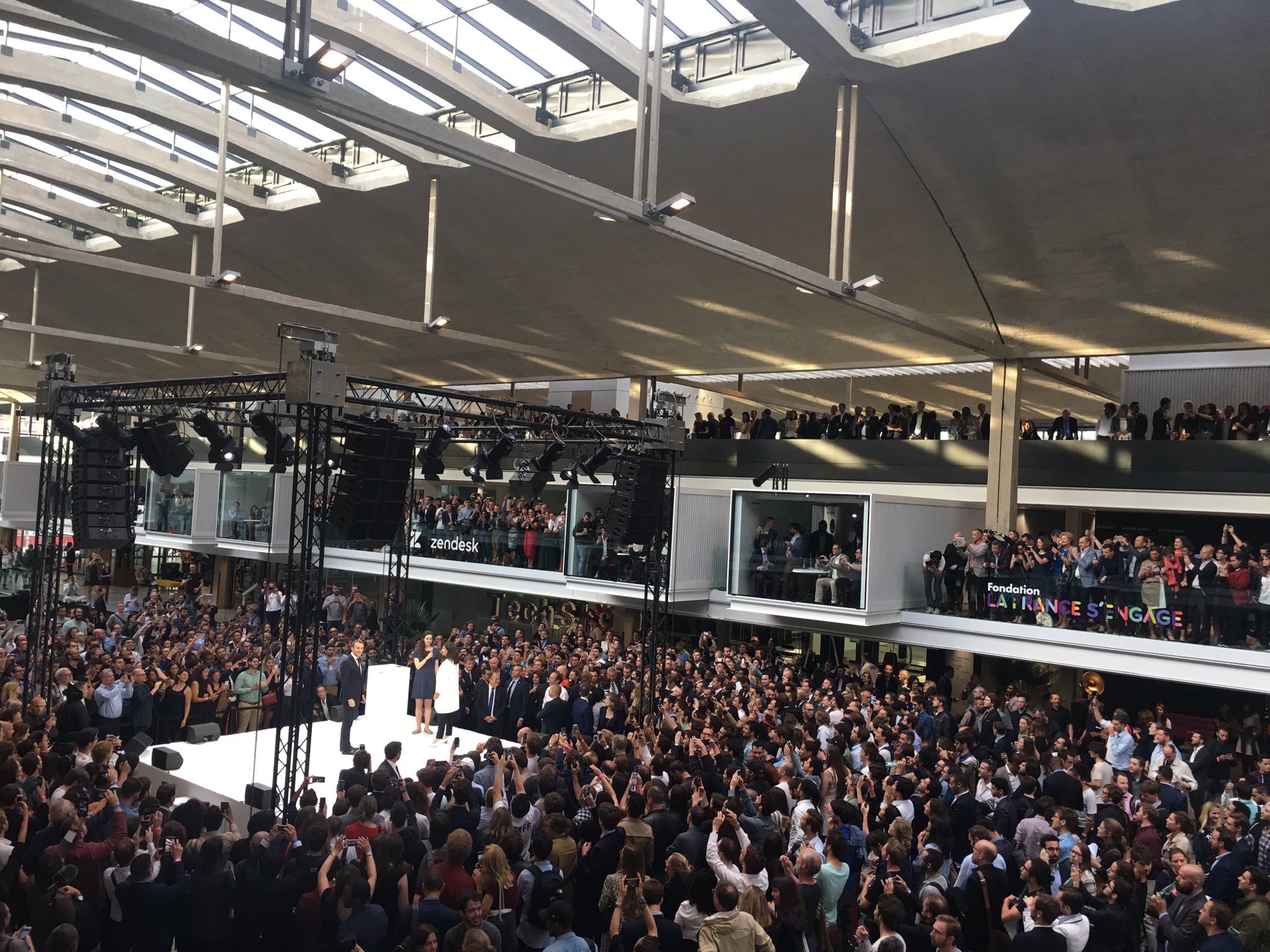
Maybe we should have gone for 2,000 startups?
In our first year, our campus amassed over 11.000 applications from around the world. But over time, we realized the number of applicants was more of a vanity metric and the real importance is the quality and types of the entrepreneurs that join and how they benefit from our community. For example, would Station F be applicable to serial entrepreneurs? Yes - we have actually seen the percentage of serial entrepreneurs on campus grow from 30% to over 50%. Or, would companies enjoy campus and want to stay on camps after their program? Yes, we find that a majority of companies do 2-3 different programs and we have had to start limiting companies to 2 years on campus to make room for others. Would demand die down after the first year? Hardly, we have seen an increase in demand across the board - from startups, to partners, to events. And beyond the pretty campus, would this be a place where companies are able to achieve key milestones and thrive? Yes, even though funding is not the only success metric we should consider, our companies have raised €1.8bn to date, with nearly €500 million in the first half of 2022 alone.
5.015 startups and a whole lot of learnings
On a more personal note, I’d like to think that I have learned a thing or two over the last 5 years (well, 6.5 years because I actually started in 2015 prior to launch).
We often talk about the success that STATION F has become, we mention our big numbers, talk about our unicorns and soonicorns - but we don’t mention all the things we have done wrong or had to change. There have been many. For example, we’ve had to discontinue certain offers because they didn’t perform the way that we had imagined, we’ve had to add or modify certain processes that were downright overlooked or inefficient, we’ve had to change equipment and installations because they weren’t adapted to the actual usage on campus. And there are still a ton of things we want to improve. Here are a few key things I’ve learned.
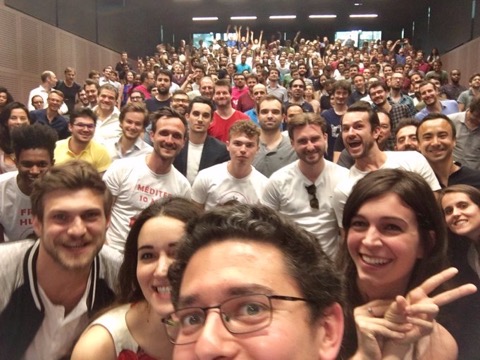
KIck off of the Founders Program in July 2017. Note to self: do not onboard 1.500 people before checking electrical outlets and wifi.
Do not undervalue the importance of physical space
I’m a huge believer in the importance of physical space - actually, even more since Covid. And even though I love tech, I believe that there is just a magic to real-life interactions that cannot be replicated online. The type of space and physical layout also has an impact on the types of interactions people have and their creativity - high ceilings, open floor plans, transparent meeting rooms, etc. These all communicate different things and facilitate (or inhibit) different types of behaviour. Over time, my team has grown increasingly more aware of the various uses for our spaces. We’ve made numerous adjustments and will continue to make more. For early stage startups that are resource tight, it’s also important to maintain the right balance when it comes to comfort in the workplace - a well-known entrepreneur once told me “STATION F may be too comfortable”. So, while it’s easy to think all workspaces are alike, we find that it couldn’t be farther from the truth.
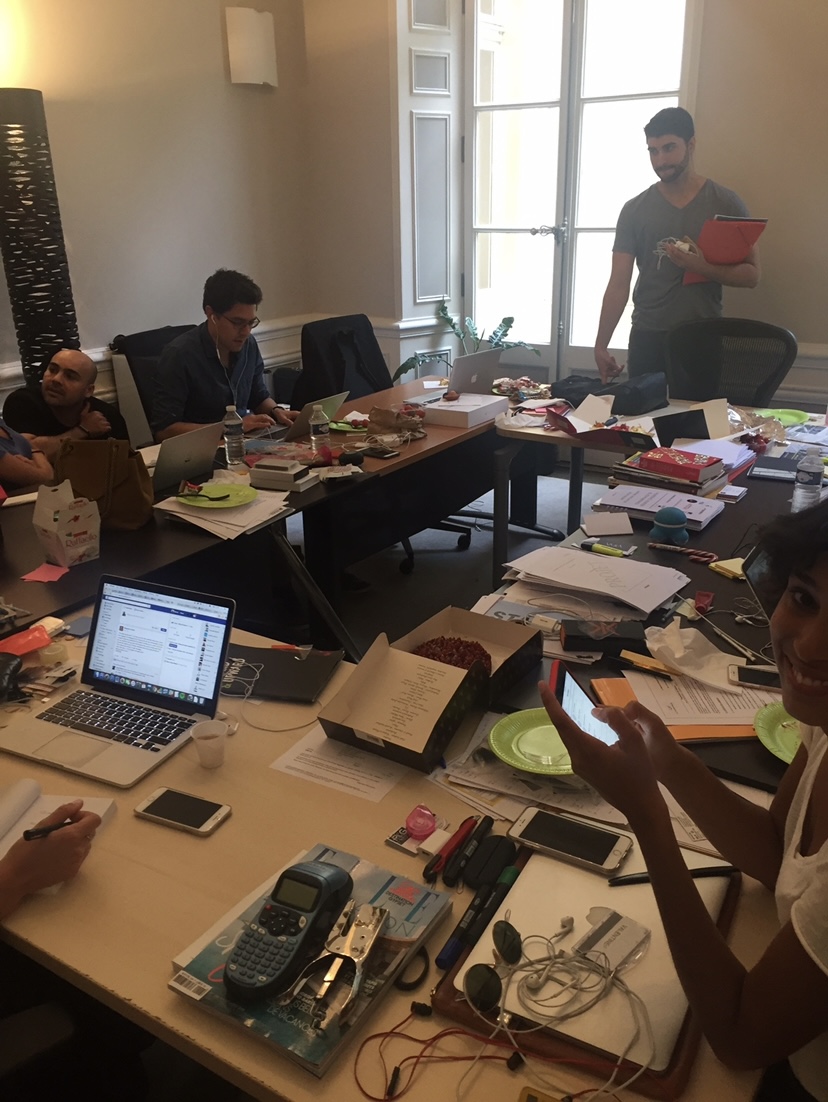
This is where our team worked pre-launch. Cozy, and great for team cohesion…
Now, as much as we love physical space, our initial experience was designed with too much emphasis on physical presence. Well before Covid, we noticed that our startups were all working at their own pace and sometimes coming to the office only several times per week or month. Therefore, they would miss out on key moments, meeting one another and they wouldn’t be able to capture all the value that STATION F had to offer. As a result, we have started redesigning a lot of our experience for a hybrid world.
Not all resources are created equal
When comparing startup spaces, the resources may start to look really similar as well. Desk space, wifi, discounts on tools, mentors, events. So how are we different? I get this question all the time. The truth is that these elements are the “basics” - they definitely matter but they aren’t usually reason startups choose one place over another. What we find startups value the most are the STATION F brand and community - and what these both do is open doors.
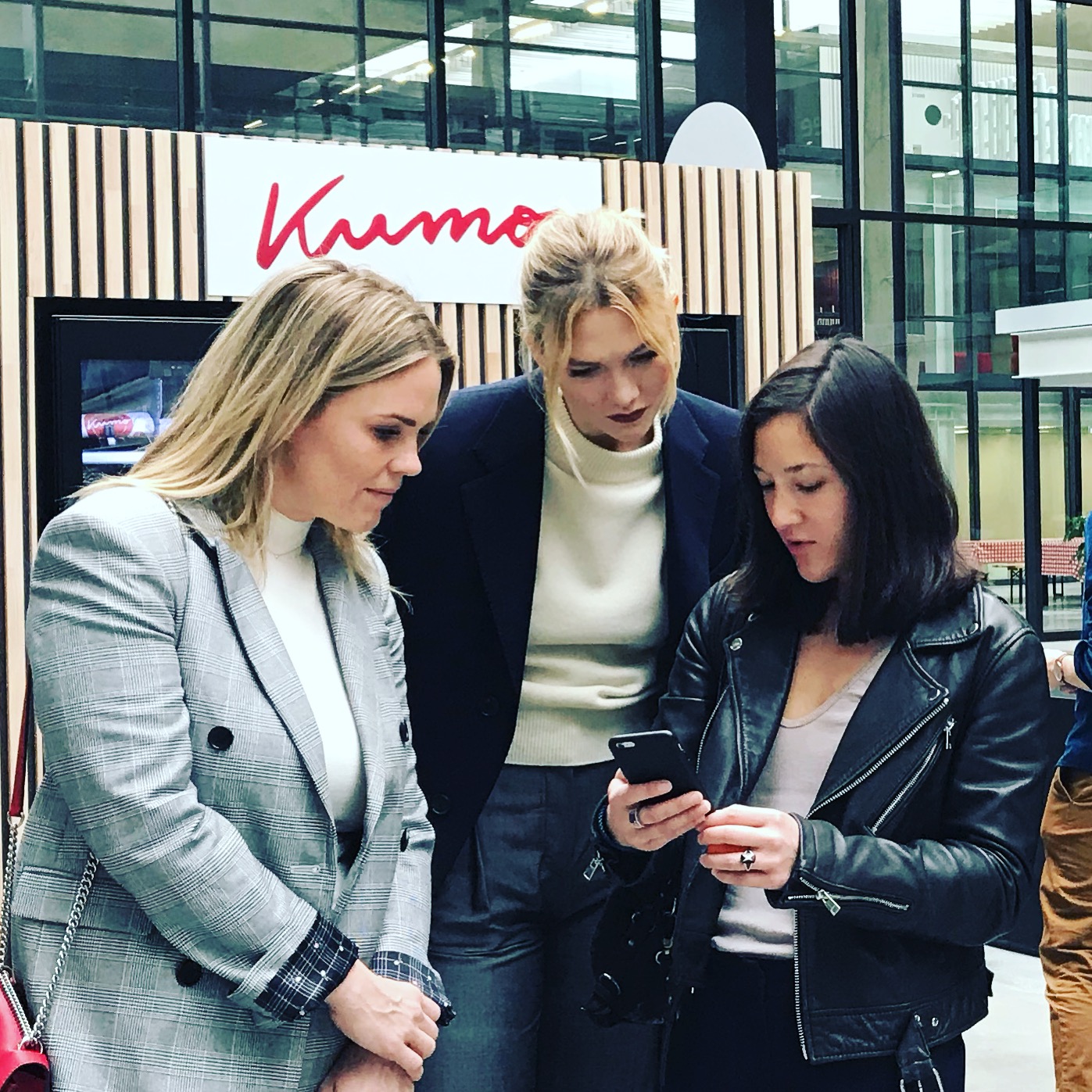
Karlie Kloss checking out Foodvisor
When startups join STATION F, they have access to literally everyone in our network, which is why we put so much effort into building and selecting the different members of our community. Every single partner we work with is a worldwide leader in their domain and is able to provide support on an international level. Every startup that joins is validated (if not selected) by our team and often evaluated by other entrepreneurs. We also go out of our way to make sure that world leaders from a variety of industries come to campus and are able to meet relevant companies. In fact, many of our international founders joke that they wanted to meet someone in their country of origin - but it didn’t actually happen until they were at STATION F. All this to say that company building - despite the tech - is very relationship-driven, and we believe that having the right community largely enables these key relationships.
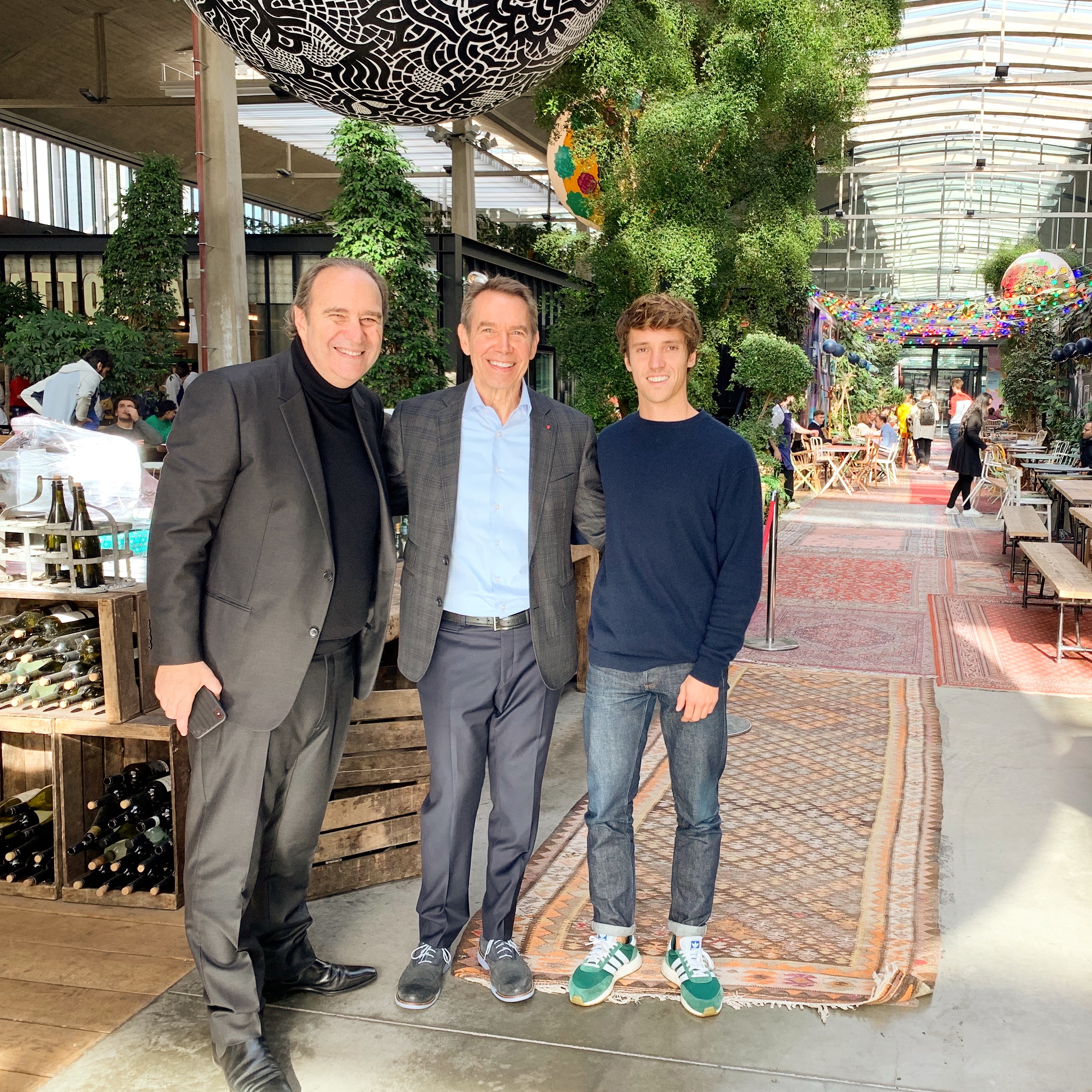
Xavier Niel and Jeff Koons with the founder of Trone
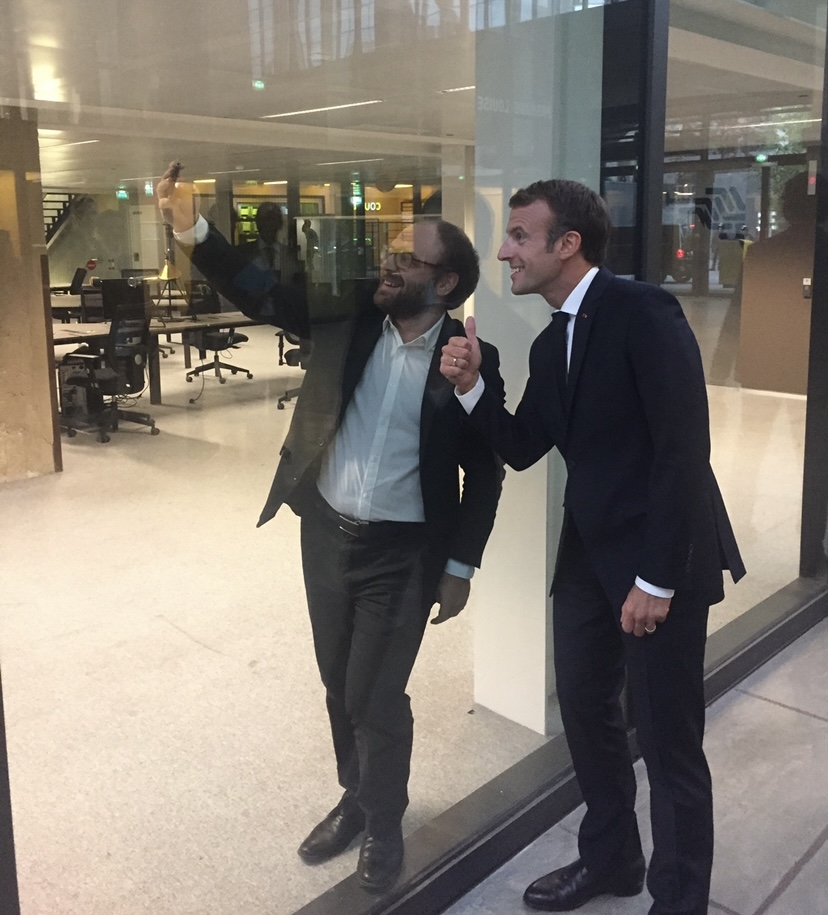
President Macron and the founder of Swapcard

Just a random week in November 2021…
Culture matters most
Finally, this is where I think we have learned the most. We have been lucky with our culture on campus given how organic it has been. But in order to build a strong community where entrepreneurs really feel a sense of belonging we need to be much more intentional about, well, everything. We have largely left everyone in the community to behave as they see fit - and while this allows for a lot of freedom it doesn’t always create an environment that pushes everyone forward. This is especially true given that our international community is accustomed to very different ways of working and socializing. We can build the greatest space in the world, invite all the best entrepreneurs and partners to take part, but without laying the right guidelines and values for the culture, we will lose half of the value of what we are trying to create. So this is where we have decided to invest a lot more energy.
A lot of our Future 40 companies have helped us strengthen our culture on campus by setting an example for others to follow (video from 2019)
5 years down, what are we most proud of?
There is so much we have accomplished over the years - it’s hard to pick just one thing. But if I had to pick one thing, I’d say it’s that we managed to create something that other ecosystems want to copy. This seemed unthinkable for France when we were starting out 5 years ago. France was soul searching and looking for inspiration elsewhere - never did we imagine that we could inspire others. And now, looking at everything that has happened, I’m so pleased that we could play a part in it.
So with 5 years under our belt, many people are asking us: what’s next? Well, we have a lot of new projects already in the works (no spoilers, except maybe a few hints that I gave above). We’re excited to build on our great foundation and to turn our little pre-seed/seed campus into a proper empire. Stay tuned for more to come.
Now, to everyone who has contributed in any way to making STATION F what it is today, from the bottom of my heart: thank you.
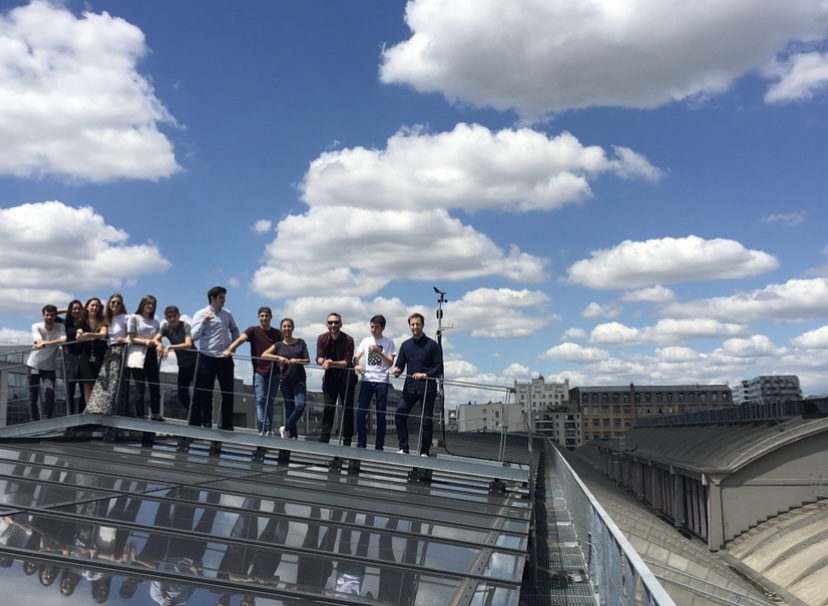
Some of the team on the roof :) I can’t remember how we got here
Looking for press resources? Download our press kit and get in touch with our media team.